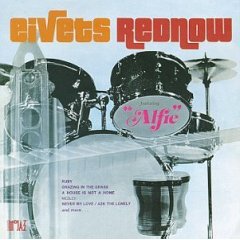| Eivets Rednow | ||||
|---|---|---|---|---|
 | ||||
| Studio album by Eivets Rednow (Stevie Wonder) | ||||
| Released | November 20, 1968 | |||
| Recorded | 1967–1968 | |||
| Studio | Hitsville U.S.A., Detroit, Michigan | |||
| Genre | Soul | |||
| Length | 32:01 | |||
| Label | Gordy | |||
| Producer | Henry Cosby | |||
| Eivets Rednow (Stevie Wonder) chronology | ||||
| ||||
| Singles from Eivets Rednow | ||||
| ||||
Eivets Rednow is the ninth studio album by Stevie Wonder, as an easy listening and rhythm and blues instrumental album, released on the Gordy Records label in 1968. [1] The album was created as a follow-up to the successful easy listening instrumental single "Alfie". [2] "A House Is Not a Home", another song by Burt Bacharach and Hal David, also appears on the album. The album reached No. 37 on the U.S. R&B charts. [3] "Eivets Rednow" is an anadrome of "Stevie Wonder"; Wonder's name does not appear on the cover of the original releases. [4] This was Wonder's ninth studio album, released on November 20, 1968.
Contents
Wonder plays the harmonica, drums, piano and clavinet on this album, though like his debut album, he does not sing on any of the tracks. On some reissues, "How do you spell Stevie Wonder backwards" is printed on the top corner of the album sleeve in small print.
This is also the first album that has song credits solely by Wonder himself.
| Review scores | |
|---|---|
| Source | Rating |
| Allmusic | |